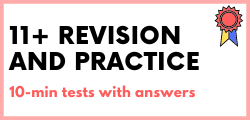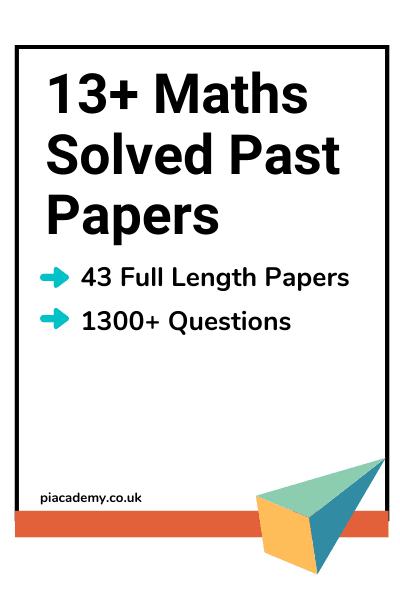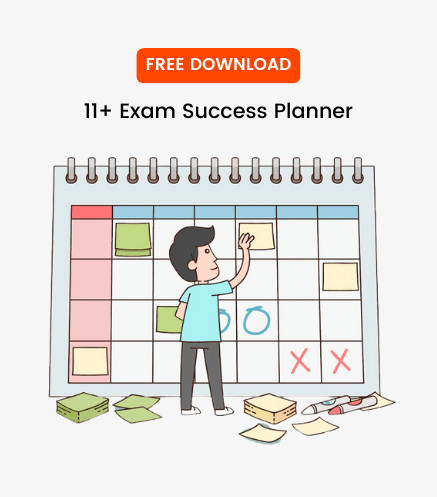Introduction to 13+ Exam
The 13+ Common Entrance Exam is an hour-long exam on average, per subject within the exam, that benchmarks a student’s ability for admission to schools in the UK. It is usually undertaken in Year 8 for entrance to Year 9. Students are tested mainly in three subjects; English, Maths, and Science. However, other subjects may be tested by different schools as part of the admission process.
Generally speaking, about eleven subjects can be rigorously tested as part of the 13+ Exam process. This article is an attempt to guide you through this and answer as many of your queries as we can with this 13-plus exam guide.
Know the 13+ Exam Process Using 13+ Exam Guide
When we say 13+ we, of course, mean the 13+ Exam. Throughout this article, 13+ and 13 plus Exams or examinations will be used to refer to the 13 Plus Common Entrance Exam for admission to Year 9 in schools in the UK.
While preparing for the 13-plus exam must begin a couple of years in advance, the actual procedure for taking the 13+ exam grammar school exam begins with the registration process. To register, parents need to visit the ISEB website at reg.iseb.co.uk. The candidate’s contact details then need to be entered, including
- Forename
- Surname
- Senior School
- Subject options
Important:
- The certificate will bear the name entered on the registration site so make sure the name is correct in spelling.
- Check the subjects and levels at which the candidate is being entered. If you are unsure, first take advice from a tutor.
- Senior School Undecided: Parents may select this option if they have not yet settled on a school for their child’s further education. However, parents need to make a selection before the closing date.
- If your child is unable to sit for the examination on the specified date, the senior school should be informed. A new date may be assigned in consultation with the school.
- Amendments: While amendments to details such as subjects, levels, etc. are allowed, you as a parent should ensure that all details are correctly entered in the first instance. This will ensure that your child does not face any hitch in taking the exam.
13+ Exam Dates
The dates for 13 plus exam dates 2022-2023 are as follows:
Summer 2022:
- Listening and Speaking: 9-12 May
- Written: 7-10 June
Autumn 2022:
- Listening and Speaking: 7-10 November
- Written: 7-11 November
Spring 2023:
- Listening and Speaking: 23-26 January
- Written: 23-27 January
Summer 2023:
- Listening and Speaking: 8-11 May
- Written: 5-9 June
Autumn 2023:
- Listening and Speaking: 6-9 November
- Written: 6-10 November
Syllabus for the 13+ Exam
English:
READING
Literary Prose
Candidates are given a passage of literary prose from a novel, a play, biography, or travel writing. This is followed by questions to test understanding as well as powers of analysis and evaluation. Passages are selected at the setters’ discretion without any standard pattern, to encourage a variety of approaches to the reading of quality fiction. An introductory line of explanation may precede the extracts. Certain words may be glossed.
Skills to be tested in 13 plus English exam papers at the appropriate level include the following:
- basic understanding and vocabulary
- use of text to illustrate answers
- drawing of inferences
- evaluation of style, language, and purpose
- delivery of opinions/judgments/arguments based on given material
- awareness of how grammar, syntax, and punctuation affect the meaning
- capacity to make comparisons and evaluate contrasts
Poetry
Candidates are given one piece of unseen poetry which may be an entire poem or an extract. This is followed by questions – a literary comprehension, in effect. Candidates are expected to show awareness of how language is used and to support opinions by reference to the text. Questions ask for candidates’ responses to literature via an understanding of how writers achieve their effects, reveal their feelings, and make readers more aware. This assumes knowledge of metaphor, simile, personification, symbol, irony, alliteration, assonance, rhyme, rhythm, and meter.
WRITING
Candidates are required to answer two questions from a range of options. Some options require the use of prose for a practical purpose: to argue, persuade, explain, advise, and inform. Other options provoke imaginative, descriptive, or narrative responses. In addition, there is the option to write on one or more texts that candidates have studied in class or read for themselves. Questions are general and not related to any specific text. They offer candidates the opportunity to deal with moments of drama, transition, contrast, and various other ideas in their chosen texts. Texts studied should range across genre and period. Candidates should be encouraged and helped to discuss their reading and analyze their ideas closely.
Science
Biology:
- Structure and function of living organisms
- Cells and organization
- Nutrition and digestion
- Gas exchange systems
- Reproduction in plants
- Health
- Material cycles and energy
- Photosynthesis
- Cellular respiration
- Interactions and Interdependencies
- Relationships in an ecosystem
- Genetics and evolution
- Variation, classification, and inheritance
Chemistry:
- The particulate nature of matter
- Atoms, elements, and compounds
- Pure and impure substances; physical changes
- Chemical reactions
Physics:
- Energy:
- Resources
- Changes in systems
- Conservation
- Motion and forces:
- Description
- Force and rotation
- Force and pressure
- Density
- Waves:
- Sound waves
- Hearing
- Light waves
- Electricity and electromagnetism:
- Circuits
- Magnetism
- Electromagnets
- Space Physics
Detailed syllabi are available online. Parents should check these to ensure that they prepare their children well.
Maths
- Number
- Algebra
- Ratio and proportion
- Geometry
- Statistics and Probability
Again, a detailed 13-plus exam syllabus is available online. Parents must check the syllabus in order to prepare their children for the 13-plus exam papers
Additional Subjects for 13+ Exam
In addition to the above, candidates will be tested in other subjects by the schools to which they apply. Parents need to check with the schools as to the subjects to be tested and their syllabi.
Preparing your child for the 13-plus Examination Using 13+ Exam Guide
There are several steps to prepare your child for the 13+ Exam. Here they are:
Begin Early for 13+ Exam using 13+ Exam Guide !
You need to start preparing your child at least two years before he or she is to attempt the 13-plus examination. Use the following checklist to help prepare your child for the preliminary stage:
- Shortlist the schools: You need to check out all the schools to which you hope your child will gain admission. Evaluate them on various parameters, such as accessibility, subjects offered, extra-curricular activities, etc.
- Get a list of subjects and the 13+ exam syllabus for each from the shortlisted schools.
- Test your child on each of the subjects: This will give you an idea of what you need to do to prepare your child. An ideal way to do this is to have your child appear for mock tests in each of the subjects.
Make a timetable for 13+ Exam
Once you get a list of subjects, including additional subjects that will be tested by the schools you’ve chosen, you need to make a timetable for preparation. The following guidelines will help you make the timetable:
- Set aside more time for subjects in which your child has proven weak in the mock tests.
- Even if your child has done excellently in some subjects in the mock tests, don’t neglect those subjects. Make sure you include inputs on those subjects, even minimally.
- Schedule more mock tests: Mock tests should be a regular part of your preparation timetable. They serve several purposes, such as
- Ensuring that your child gets used to the examination procedure
- Identifying which subjects/topics your child is still weak in
- Encouraging self-assessment: If you use 13+ exam solved papers to let your children assess themselves, they get into a routine of self-assessment
- Deciding if your child needs an expert tutor for some subjects
- Make sure you set time aside for rest and play: Rest and play are crucial in helping your child develop the mental and physical skills required to take the 13+ exam. Incorporating time in the timetable for rest and play also helps your child emotionally.
Pay heed to feedback from your child
Don’t be so focussed on preparing your child that you ignore things your child might say to you about any aspect of the preparation process. Children know best what they enjoy and what they don’t and they will generally let parents know their preferences. It is important to listen to your child and amend the preparation process accordingly.
Use games, online and offline
Children learn best through games. There are plenty of maths, vocabulary, and other games available online that make learning fun and challenging for children. Offline games such as quizzes for those studying along with your children are also a great way to keep them engaged and teach them.
Conclusion
By taking an informed and analytical approach, you as a parent can ensure that your child is well-prepared for the 13-plus exam
Research the schools you would like your child to attend and get a feel of how each school evaluates test results. Make a short list of schools based on parameters like location, teaching staff, extra-curricular activities, etc.
Make sure you have a comprehensive list of subjects that will be tested by all the schools on your shortlist.
Make a 13-plus exam timetable but be prepared to modify it according to feedback from your child. If you find that your child is performing well in a subject, feel free to cut back on the time allotted to that subject and have your child practice another instead.
Make sure you cover all aspects of the exam but at the same time, make the preparation process fun and engaging.
If you follow the tips given above in this 13+ exam guide, your child is bound to face the 13-plus exam for grammar schools with confidence!


















































